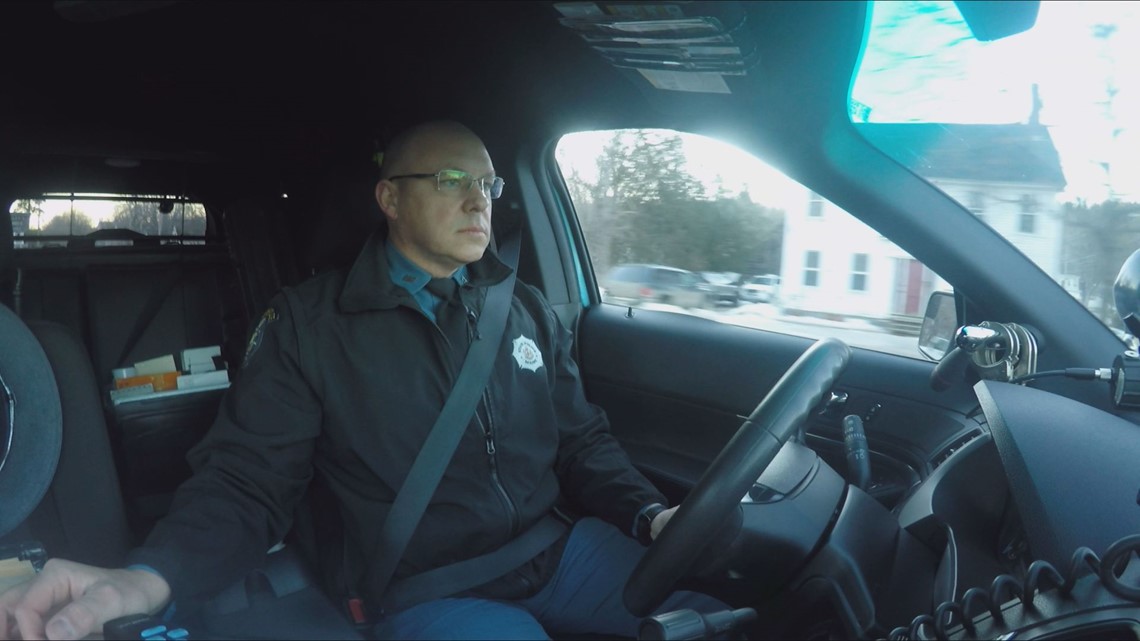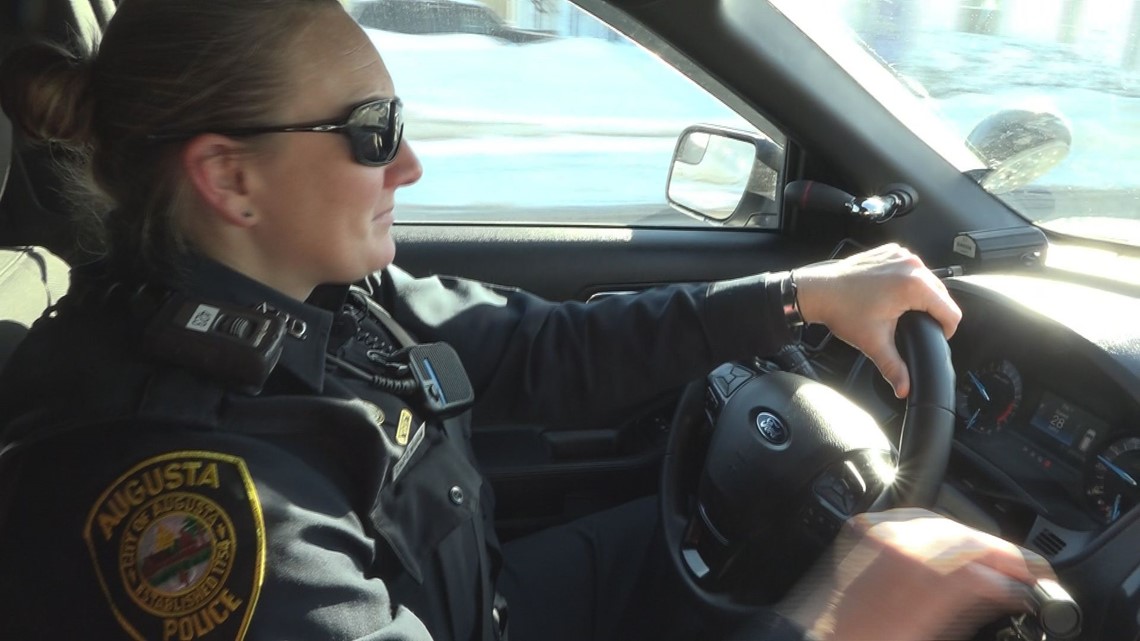PORTLAND, Maine — A 14-month-old child killed by his father. A husband and wife dead after a murder-suicide.
Those are just two of several calls spurred someone's mental health breakdown that police in Maine have had to respond to in recent weeks.
Officials in departments across the state say they are seeing more mental health calls than ever before—each one harder than the next.
REACHING THEM WHERE THEY’RE AT
"Even some of the calls that we go to that aren't labeled as mental health call often times that will be part of it,” Augusta Police Officer Carly Wiggin said.
Wiggin is one of only a handful of officers in the state that are part of the state’s Crisis Intervention Team (CIT). She chose to get trained in crisis intervention because she saw the need.


When Wiggin is not out on the streets, where she responds to those kinds of calls on a daily basis, she takes the time to read to kindergartners once a week.
"It builds that relationship early. They learn to trust us,” Wiggin said. "They're more willing to accept help from us."
That trust translates to the work she does in their communities, whether it be a domestic disturbance with parents or the more severe suicide attempt.
"It allows us to better help the community,” she said.
OFFICER TRAINING OFFICERS
"What I've learned over the course of my career is that in a short amount of time we can have an impact on a person’s life,” State Trooper Bill Baker said. Baker trains police officers in mental health first-aid and crisis intervention in conjunction with the National Alliance for Mental Illness (NAMI) Maine.
It hits especially close to home because Baker said his family history of mental illness. His mom struggled with bipolar disorder and was even saved by a police officer at one point. He shares those stories with the officers he helps train.


"It is tough sometimes,” State Trooper Bill Baker said.
For him, if he can save more lives like his mother’s was saved, it would make all the difference.
"I think we're getting better at it, and we're getting better at accepting the fact that we are just human beings trying to do a job,” Baker said.
NO ONE IS KEEPING TRACK
There are a total of 2,719 full and part-time law enforcement officers across 132 departments in Maine, according to the Maine Criminal Justice Academy.
A bill to require CIT training statewide failed to become law back in 2015. The state currently requires 20 percent of officers in every department to be CIT trained.
Now a simple form requires chiefs across the state to report that their department meets the requirement. At least one person from 161 agencies was trained in 2017 but no one was trained from 14 agencies. There is no statewide tracking of individual officers.
NEWS CENTER Maine obtained reports from NAMI Maine—the only agency in Maine that offers CIT training.
Of the nearly 3,000 officers trained by the nonprofit since 2003, at least 50 were state troopers. If none of the troopers retired or left, at most about 18 percent of the Maine State Police force has ever been trained.
Bangor Police Department has trained at least 70 officers since 2003, while Portland has trained nearly 200 officers.
In a state where the suicide rate is much higher than the national average and is the second leading cause of death among people ages 15-34, advocates say more officers need to be trained and it should be tracked.
‘IT SHOULD MATTER’
The Executive Director of NAMI Maine, Jenna Mehnert said Crisis Intervention Training should be a priority for every officer in every department in the state.
“Right now I can’t tell you how many officers have been trained,” Mehnert said. She admitted the organization cannot keep up with the demand for the training.


"If it matters to us and it should matter to us, we should at least have some kind of state-issued certification for which there's some kind of ongoing requirements, but the way it is right now it's once and done,” Mehnert said.
She said the course, that is funded by grants, does not cost officers or departments anything to take. However, many departments cannot afford to pay the officers overtime to take the training or find someone to fill the shifts.
ONE MIND ABOVE
One department that has gone above and beyond to train its officers is South Portland. The Department was just recognized by the International Association of Chief of Police’s One Mind Campaign for its efforts—the only department in the state.
Police Chief Ed Googins has been on the police force for more than 45 years.
"It's gotten different over the years, not just the situations that we're confronted with but the expectations that are placed on us,” Googins said.
Because of that, every officer in his department is CIT trained. The department also has a mental health liaison for increased support.
Googins says his officers have had to handle more and more mental-health related calls. Often times they are focused on getting people the help they need before jumping to arrest.
While he understands the challenge, he said it is something every department should strive for.
"I think it should be, but it's a huge financial investment,” he said.
NEW PRIORITIES
Although the training is not a top priority for every department, it may soon become one statewide. Newly-appointed Maine Public Safety Commissioner Michael Sauschuck said he hopes to pave the way.
Sauschuck was confirmed to the role just last month. As the former chief or Portland Police Department, he has long been an advocate for the training.
He said he plans to communicate with individual departments about their unique concerns, but also said it is time to move forward to develop a well-rounded police force throughout Maine.
"I don't look at it as specialty training anymore. I look at it as a baseline of training,” Sauschuck said. “This is important.”

